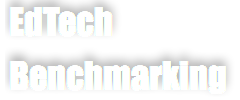College Writing Research.
What is college writing? Students writing at the college level should be able to articulate a clear thesis and situate their ideas in relation to established positions. A college essay should have an overarching structure and deploy a sequence of ideas in logical progression without repetition. College writers should demonstrate their abilities to summarize and paraphrase sources fairly and accurately. They should also have an awareness of tone and writing for particular audiences: business, academic, or scientific. Student writing should also evince an awareness of style: variation of sentence length and structure, concision, syntactical nuance (which words placed where for varied emphasis), coordination and subordination of ideas, and so forth. Student writing should adhere to the instructor’s required style format—MLA, APA, CMS, CSE, or AP—and diction and usage should also be appropriate as students’ vocabularies become increasingly sophisticated. Many of these skills are taught to students in high school as part of the Common Core standards but they are refined and extended in college writing curricula.
The demands placed on writing instruction EdTech tools are admittedly great. To bring student writers to the college level, the products must offer practical ways for students to improve their writing. Often this is best achieved using the student’s own writing as the object lesson. Language recognition programs that highlight granular errors such as incorrect usage or fragments and the like can be helpful as well as those that track errors of greater magnitude like redundancy or organizational problems. Built-in reference or resource guides are also helpful for students to learn about grammatical matters or style concerns (headings, in-text citations, bibliographic entries, etc.) The focus of the programs should be on instruction, enhancing student attention to the articulation of ideas, rather than just serving as a proofreading service.
Every year, over 2 million college students (in the US alone) participate in some type of College Writing course, and many others have some form of writing included in other courses they are taking. The research we are conducting is aimed at benchmarking writing products available to colleges, faculty, and individual students. This research will cover a number of quantitative and qualitative criteria categories as well as coverage of writing skills and competencies with instructional and assessment content.
Products covered with this research are:
- Connect Composition by McGraw-Hill Education
- LaunchPad by Macmillan Education
- MyWritingLab by Pearson
- Pearson Writer by Pearson
- Read&Write for HE by texthelp
- WhiteSmoke Anywhere by WhiteSmoke
- Writer's Help by Macmillan Education
- WriteToLearn by Pearson Knowledge Technologies
- Write Experience by Cengage Learning
- Writing Roadmap by McGraw-Hill Education
The report is targeted for Release in Q2 of 2016.
Is there any other product we should include in our research?
Would you like to subscribe to email updates and be the first to find out about report availability?
Please send us a message using the contact form.
Research is being conducted by:
Ted Kehoe, M.A., M.F.A. Ted teaches argumentative writing and research at Boston University
Mladen Malkovich, Founder, EdTechBenchmarking.com



